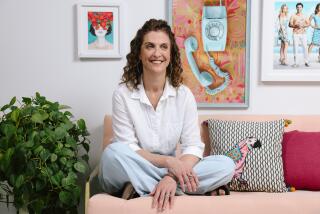Creator Dan Fogelman knew he had a gem with breakout hit ‘This is Us’
Recently, actor-director Fred Savage tweeted a plea to Chrissy Metz, who plays Kate on NBC’s new drama, “This Is Us.” “Yes @chrissymetz, yes! Now if you could just stop making me cry every week, we could be best friends.” Savage is not the only one taking to social media to discuss spilling tears while watching the delicately intertwining, past-and-present lives of the Pearson family – the grown children are Metz’s aforementioned Kate, her twin brother Kevin (Justin Hartley) and their adopted brother Randall (Sterling K. Brown); Mandy Moore and Milo Ventimiglia play their parents.
Lately, there seems to be an entire branch of Twitter devoted to “This Is Us” love and the lachrymose havoc it wreaks. The other day, as series creator, Dan Fogelman, (“Cars,” “Crazy, Stupid, Love”) sat in his office on the Paramount Lot, he confessed, “I’m not surprised that it’s touched people or moved people. I always felt that was going to be a selling point. But the crying has caught me a little bit by surprise – but not in a bad way.”
It’s no news to Fogelman, however, that his breakout hit – it’s most recent episode as of press time brought in 9.5 million viewers – is unfolding on network television at a time when cable and streaming are thought of as more artistic outlets. “What’s exciting about the show’s success is that you’re starting to see that chances can be taken,” says Fogelman about the networks, and indeed, “This Is Us” toyed with broadcast’s prim reputation in the pilot episode by featuring a glimpse at Ventimiglia’s naked backside as his character prepared for a sexy birthday dance from his very pregnant wife.
See the most read stories this hour »
If “This Is Us” began as an abandoned spec script for a feature film, one about a group of same-aged individuals, each at a different crossroads, it wasn’t until Fogelman thought of the ending – a big reveal that their lives were interconnected -- that his “brain started exploding.” “I picked it back up, rewrote it and made it into a TV [series],” says Fogleman, who shopped it around by having executives first read the pilot script before letting them in on two structural twists for the second episode: It would open with eight years having passed in the Pearsons’ lives, and, by the close, jump ahead 28 more years, hinting that the unwaveringly loving mom and dad characters are no longer a couple.
“It completely changes what the series is,” says Fogelman, whose distillation of his drama comes down to seeing the extraordinary in ordinary people’s lives. “But NBC gave me their word that I’d have creative freedom and they’ve never gone back on it. Any single detail, any fault of the series, is 100% my doing.”
Before the series began, Fogelman brought in an expert on trans-racial adoption so that his writing staff could better absorb the intricacies of Randall’s story arc, of what it is like to be an African American child raised in an all-white family. As for the character of Kate, who struggles with obesity, Fogelman’s most reliable resource is the woman whom the character is loosely based upon, his real-life sister, Deborah Fogelman Devine, who works as a consultant on the show.
“For my sister, weight has been a constant battle, up and down, for her entire life,” says Fogelman of Devine, who keeps Kate real by reading every script, then offering her opinions. “I loved sending notes from my sister to the writers,” says Fogelman, adding that something she said to him evolved into one of Kate’s most memorably revealing monologues. “I said, ‘I’m trying to find stories for Kate that aren’t always about the weight,’ and she said, ‘It’s always about the weight.’”
“When I read that, I said, ‘Dan, these are words that I’ve said,’ ” says Metz, who, with her dimpled smile, force of personality, and skill at showing years of accumulated pain in brief, flickering moments, is arguably the series’ fan favorite. But from Metz’s perspective, Kate’s popularity is also about the fact that her relationship to the number on her bathroom scale isn’t mined for laughs or pity. “It’s not about a girl boo-hooing in the corner because she’s not as thin as the average woman,” says Metz. “It’s just a complex journey about a normal everyday person.”
More to Read
From the Oscars to the Emmys.
Get the Envelope newsletter for exclusive awards season coverage, behind-the-scenes stories from the Envelope podcast and columnist Glenn Whipp’s must-read analysis.
You may occasionally receive promotional content from the Los Angeles Times.






